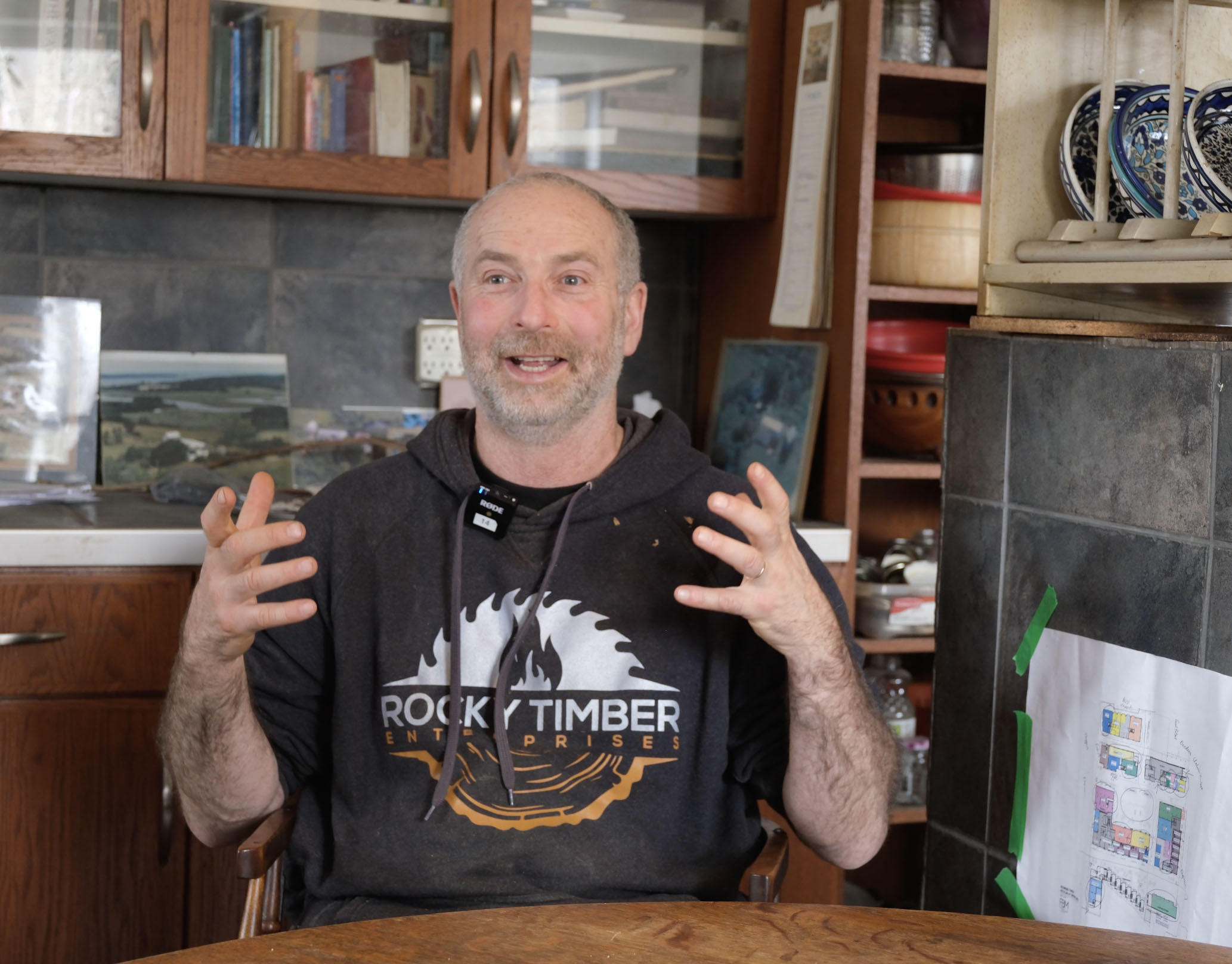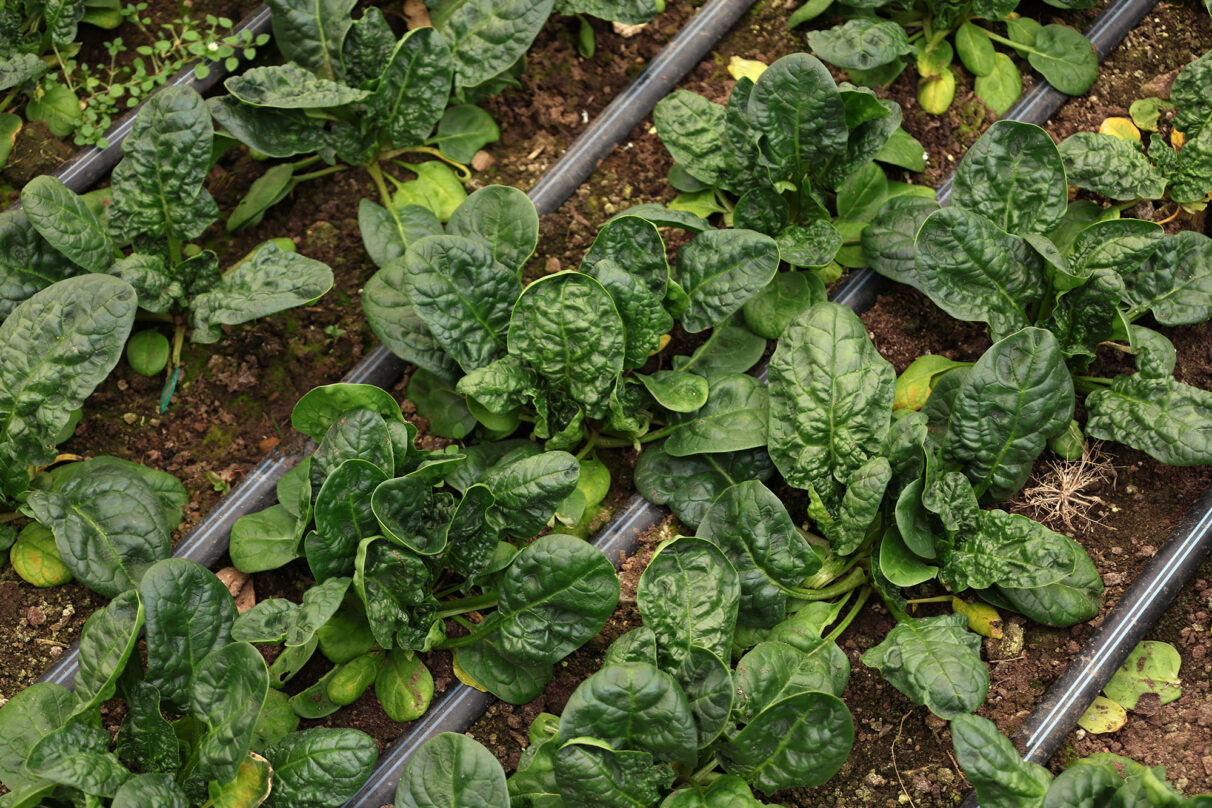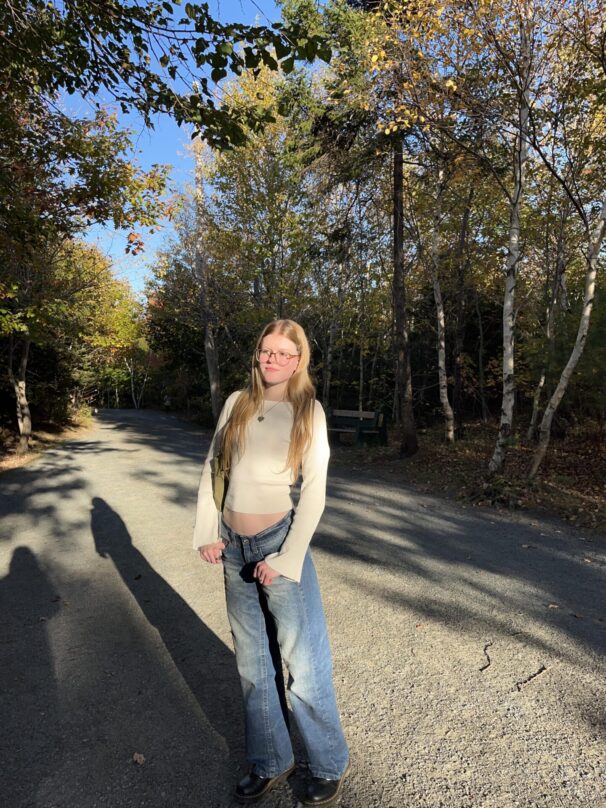Growing wealth and goodness from the sun and the earth
David Greenberg is farming with nature, not against it

caption
David Greenberg, co-owner of Abundant Acres Farm.David Greenberg’s home feels alive. Books and plants fill every available surface — limes, lemons, orchids, and dozens of aloe vera plants, propagated by his wife Jennifer, litter the window sills.
A mini rat terrier named Hakurei, after a Japanese turnip, darts around the kitchen. In the midst of it, Greenberg sits at the dining table, his dark hair streaked with grey and his face weathered from years outdoors.
Outside the kitchen window, chickadees and cardinals flit between the bird feeders. It’s a Monday in early March, and the last traces of winter linger in the crisp afternoon air. Soon, the farm will come alive again, as it does every year, with new growth and the steady rhythm of planting and harvesting.
Greenberg, co-owner of Abundant Acres, has spent over a decade shaping his land into something more than just a farm. Tucked along the tidal Cogmagun River in Hants County, Abundant Acres is a model of what small-scale, ecological farming can look like.
“My wife Jen bought the farm when she started graduate school in ‘93,” Greenberg said.
“When we got together, we turned the farm from a homestead to a commercial vegetable operation back in 2011.”
Greenberg recounts how as a child, he spent hours stocking shelves at his parents’ health food stores in Nova Scotia, swearing he’d never follow in their footsteps — yet years later, he finds himself deeply involved in both farming and market selling.
Now, he grows seven acres of vegetables, with 12 greenhouses spread across 90 acres of land. The produce is sold through The Warehouse Market, his Halifax storefront. But for Greenberg, farming has never been just about production, it’s about restoration and protection.

caption
Trays of seedling starters fill the greenhouse.To ensure this, Greenberg and his wife placed their farm under a conservation easement. This legally binding agreement prevents the land from being developed or sold at speculative market rates, ensuring it remains accessible to future farmers.
“As we’re getting older, we’re looking to pass the farm on as a working farm to a next generation of farmers,” he adds. “It really does feel more like restoring the land than investing in business, which I like.”
For Greenberg, sustainability isn’t just a word, it’s a necessity. The way he sees it, if a system isn’t sustainable, it collapses.
“A good example of a system falling apart might be health care or housing in Canada right now. Basic things I grew up expecting to continue haven’t — they’re crumbling and stressing and falling apart. I’d love to see an agriculture emerge that staves off the unsustainability of the food supply.”
He compares the collapse of these essential systems to the way industrial farming practices deplete the land, making it harder to grow food sustainably over time.
At Abundant Acres, sustainability means more than just avoiding pesticides or reducing waste, it’s about working with natural systems, rather than against them.
“As close as possible, it’s sunlight hitting the ground and turning into delicious food and wealth and goodness,” says Greenberg.
The farm is designed to integrate untamed spaces and encourage biodiversity, creating a farm that can withstand environmental challenges and sustain itself over time.
This resilience starts in the soil. Greenberg avoids synthetic fertilizers, which he likens to a diet of “Red Bull and protein powder” for the earth.
Instead, he focuses on keeping carbon in the soil, using wide sod-covered pathways between growing beds to prevent erosion, and cutting and blowing that grass back onto the fields to feed the soil naturally.
“Sustainability also means that this is a farm I want to keep working at into my old age,” he says.
“It’s not something I begrudgingly endure so that I can retire and go enjoy myself. That’s such a sad attitude toward work.”
He envisions a future farming system that is more co-operative and resilient. But he also knows there are serious challenges ahead.
“Since I started farming in the early ‘90s, the price of produce has doubled, and the cost of labour, land, and equipment has tripled. There’s a gap. Unless we can get a lot better at being more efficient, at being more co-operative, something has to change.”
Despite the obstacles, Greenberg remains hopeful. Farming, for him, isn’t just a job, it’s a way of life.
About the author

Lynnette Alford
Lynnette Alford is a second year journalism student from British Columbia.
